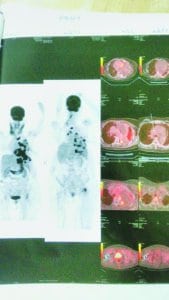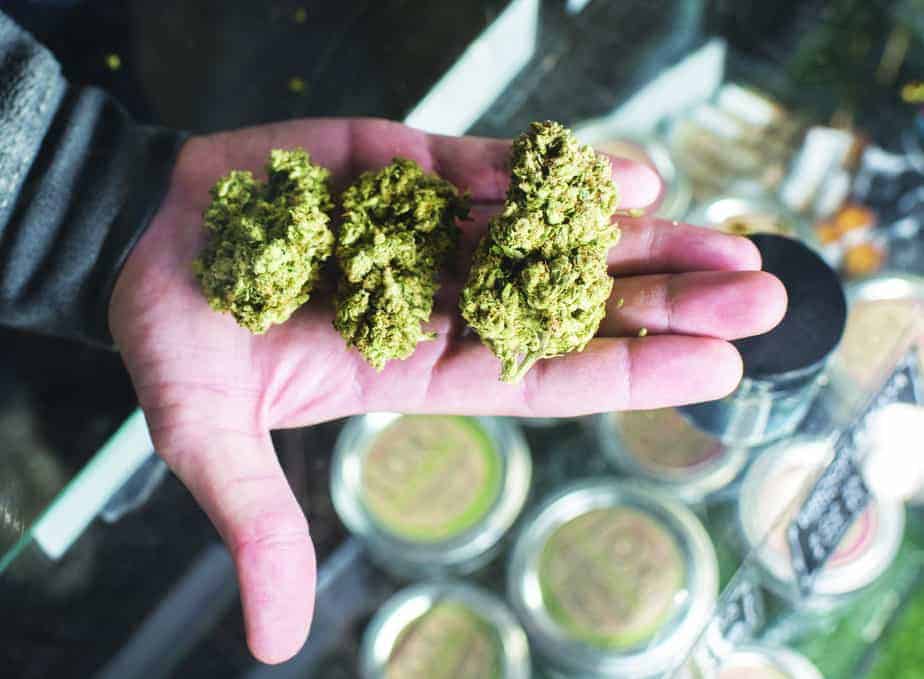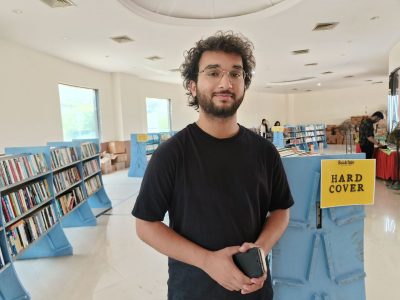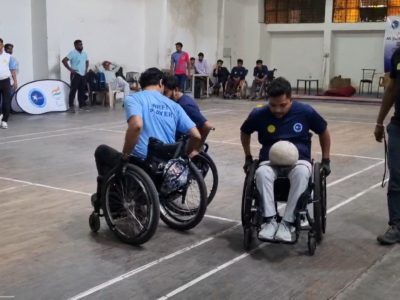The monsoon session of Parliament is slated to take up a bill legalising medical uses of marijuana. Cancer patients and their families are hoping for a healthy debate
Marijuana has a bad name. People think it turns the user into hippies, who dance around a fire — and when that high is no longer enough, start taking harder drugs like heroin.
But what marijuana’s bad name is helping do, is kill a chance for many people to be able to access an alternate therapy in India, especially after conventional methods fail. Many countries have tested and showed the effectiveness of medical marijuana (or cannabis) in curing diseases, relieving symptoms of a disease, and side effects of allopathic therapies.
Lok Sabha MP from Odisha, Tathagata Satpathy, is one of the loudest political advocates for legalisation of marijuana in India. He told Patriot that with medical marijuana undergoing tests worldwide, it is important for India to lead the global experimentation and benefit from it.
The reasons behind the opposition to marijuana is mainly ignorance, Satpathy believes. “We consider marijuana only as an intoxicant”, but even that is fine, he says, because it’s natural.
But this article argues about the benefits of making medical marijuana legal, even as other nations make it legal recreationally — the most recent being Canada, which is one step closer to allowing its citizens to ‘mong out’.
The marijuana plant contains more than 100 different chemicals called cannabinoids. Each one has a different effect on the body. Tetrahydro-cannabinol (THC) and cannabidiol (CBD) are the main chemicals used in medicine. THC also causes psychoactive effects.
LIVES CHANGED
Daniel Rishi Sundar also wants to see the legalisation of marijuana for medical use. He has opened a company —Deomali Herbs in Odisha, where cannabis consumption is legal. The company hopes to create medical cannabis and other Ayurveda medicines. Sundar’s journey with cannabis began at an early age in college, when he used it recreationally. This personal experience helped him later when his mother fell ill.
Diagnosed with breast cancer in 2013, Sundar’s mother, S Lalitha had to undergo mastectomy after which she was put through chemotherapy and then radiation therapy. They thought the cancer was gone. “We thought it won’t come back but in March 2015 we were told the cancer had metastasised to her stomach, kidneys, lungs and small intestine.”

Her lungs had pleural effusion, which is a build-up of fluid which they had to pump out every 10 days. The doctors gave her six months to live if she underwent chemotherapy again, and about three months if she didn’t. “My mother refused. She said she would rather die next week than go through chemo again.” After this conversation, Sundar asked her how she felt about taking cannabis. She agreed to try it.
He bought home cannabis and started making its oil himself. Sundar admits that his mother would get sleepy, and also suffered from short time memory loss because of the cannabis, but the side effects outweighed the good: “She was very relaxed, she didn’t have any pain anywhere and no cramps, and her digestion was better”.
Four months into administering the oil, in October 2015, there was no need to drain her lungs anymore. The cannabis oil was continued till December 2016 – she had already outlived the doctor’s prediction by 19 months – by then she was doing well, and was not bedridden, “she was able to walk, do things around the home, even cook.” They got her PET scan done in April of 2017 which showed that 85% of the cancer was gone. “We then decided to continue the oil.”
Sundar’s mother, S Lalitha, unfortunately died last year in November, not from cancer but from a fall. “We saved her from cancer but couldn’t save her from the accident,” he adds.
Sundar has a blog where he has talked about his mother’s battle and the way cannabis helped her. It now sees many people writing in to him with various questions. One such person is Neel,* who contacted Sundar for the required dosage for his dad who has non-Hodgkin’s lymphoma. Diagnosed in 2000 with stage three cancer, Neel says his father went through chemotherapy and then had to repeat it every four years as it kept coming back.
He had already undergone chemotherapy six times and radiotherapy three times, and then things got worse, with the cancer becoming more aggressive.
In July 2017, PET scan report showed eight nodes — out of which four were in a bad shape. “We realised chemotherapy wouldn’t work for him and we didn’t want him to go in that way,” says Neel. The last time his father did chemotherapy he says, Abhijit* had become very weak, “he would blabber, not eat, and cried a lot”. Neel then learnt about Rick Simpson oil — developed by a Canadian medical marijuana activist after whom it is named — from his sister who lived in the US.

He started giving Abhijit the oil and stopped administrating Ibrutinib — a drug that costs R2 lakh per month, and only made his father’s life more miserable.
Within a month, they could see a difference, “He wasn’t crying anymore, he would talk, we could see how different he was. He even started hogging,” while earlier he had no appetite. But the meds given before had made him diabetic, so they had to make sure he ate healthy and avoided chocolate and ice-cream, which he loved. Neel says that even his father’s diabetes is now in control because of cannabis.
After every two months, they have to go see the doctor, who never insisted on a PET scan. When they finally did the test, the nodes had become much better and three of the eight were almost gone.
He will soon take his father to get a scan again, but Abhijit has stopped the cannabis as his father doesn’t like the high anymore – he had to take it three times a day. Rick Simpson’s therapy, however, insists to continue with the dosage until the cancer is completely eradicated.
TEST AND TESTIMONIALS
Dr Vishal Rao, surgical oncologist with Health Care Global enterprises had publicly backed the idea of cannabis, and raised concern that the country was ignoring the medicinal properties of a plant that can help cancer patients. He was quoted in a report as saying that cannabis derivatives prevented blood supply to the cancer tumour while also helping those that were undergoing chemotherapy. (He did not respond to queries for this article, despite repeated attempts.)
Cure from cancer is something not medically proven yet. The American Cancer society says that the two cannabinoids have shown to slow growth and/or cause death in certain types of cancer cells growing in lab dishes.
There are also many testimonials online of those affected by epilepsy and Parkinson’s disease, seeing a new day with cannabis. An American news website had reported about two-year-old Jaelah Jerger who has epilepsy, suffering 30 seizures a day. Her body did not respond to any conventional drug, so the parents decided to give her the CBD and within a week, Jaelah’s seizures were largely gone.
A pharmaceutical drug that is helping out epileptic patients is Epidiolex, with 99% CBD. Currently there are studies taking place on the drug which has the Food and Drug Administration (FDA) approval to be administered to some epilepsy centres.
Another debilitating disease which is being helped by cannabis is Parkinson’s. A documentary “Ride with Larry” shows the life of ex-cop Larry Smith who struggled for 20-years with Parkinson’s. He had exhausted every drug, and even done brain surgery, but nothing helped. After taking cannabis oil, within two minutes his severe contusions and jerking — termed as dyskinesia — due to the drugs, stopped.
So, what’s the problem with India following the footsteps of many countries which have not just allowed the use of marijuana medically but also recreationally? Even in the US, which was the torchbearer for India’s policy change regarding weed in 1985 now has 29 states and Washington DC, which have legalized marijuana for medical or recreational use.
In 2017, Union Minister for Women and Child development, Maneka Gandhi, backed the idea of legalising medical marijuana. But the laws on possession of marijuana remain harsh. Under the Narcotic Drugs and Psychotropic Substances Act, 1985, any person found cultivating a cannabis plant is faced with rigorous imprisonment up to ten years, and a fine of R1 lakh.
A person who produces, manufactures, possesses, sells, purchases, transports, imports or exports inter-state or even uses cannabis, and if the quantity confiscated is less than 1 kg, can face a jail term of up to six months.
This may, however, change soon if AAP’s Dr Dharam Vira Gandhi has his way. His private member’s bill to legalise marijuana has been cleared by the legal department and will most probably be tabled in the monsoon session of Parliament.
A vocal supporter of medical marijuana, Gandhi’s bill seeks to change the standing of the drug by eliminating criminal penalties and regulating cannabis not just for medical but also recreational use.
When it comes to medical uses, there is certainly a case for giving people the choice to save themselves or their loved ones without fear of jail.
(Names changed on request)





